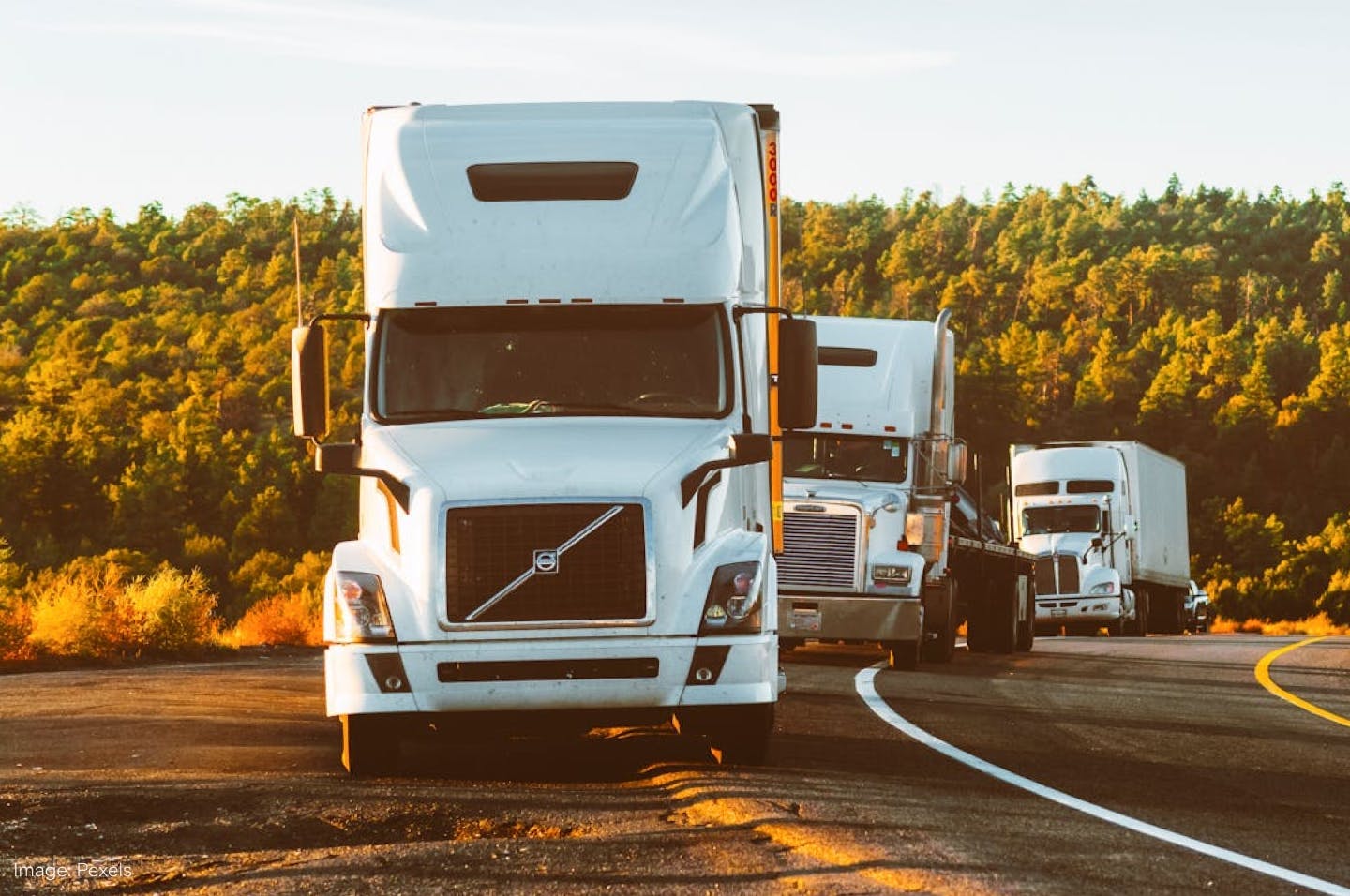
Haul
The trucking industry keeps on moving as a key support network of the economy. But there are plenty of speed bumps out there.
Almost everything we buy or use has spent some time on a truck – whether it's fresh produce from a farm, furniture from a warehouse or electronics from a factory. Trucks are the lifeline connecting producers with consumers, suppliers with retailers and manufacturers with distributors. And thanks to the likes of UPS ($UPS) and Amazon ($AMZN), many purchases can now come straight to your doorstep.
It's not just about moving goods from point A to point B; it's about doing it efficiently, reliably and affordably. While trains rarely encounter traffic jams, are less affected by human error and produce lower carbon emissions, the high upfront costs put the brakes on the expansion of their tracks. The flexibility and versatility of trucking options are hard to beat, and in any case they would be the choice for the so-called last mile of delivery journeys.
Trucking accounted for 80.7% of the U.S. transportation industry’s US$940.8b freight revenues in 2022. And the sector has a major ripple effect on other parts of the economy. When goods are delivered on time, businesses can meet customer demand, reduce inventory costs and increase productivity. This, in turn, fuels economic growth, creates new opportunities and drives innovation across industries. Stop the trucks and you can imagine the domino effect.
But it’s not all clear roads for the trucking sector. Firms have to deal with volatile fuel prices and rising insurance premiums, while they’re heavily exposed to shifts in consumer demand. After a tumultuous COVID-19 period, cargo volumes trended downwards in 2023 and there are worries the ‘freight recession’ will continue this year. Not all companies have survived this slump, with Yellow, one of the largest U.S. carriers, collapsing.
That demise left more room for other big players. Old Dominion Freight Line ($ODFL) took over some of Yellow’s capacity, while XPO Inc ($XPO) paid US$870m to buy its 28 service centres. Yet not everything in trucking comes in large sizes: small businesses are actually the norm. Over 95% of U.S. carriers operate 10 or fewer trucks, and 99.7% operate 100 or fewer trucks. This leaves them with reduced bargaining power when negotiating with their own suppliers.
In addition, the industry’s innovation journey has proved rocky. Recharging ranges mean many current electric truck models are better suited for shorter routes, while numerous firms favour a future where trucks travelling long distances are powered by hydrogen.
Nevertheless, the sector is constantly shifting gears to adapt. Autonomous trucks have been a feature of Australia’s mining industry for many years, and they could be coming to busy highways in the near future, with firms such as Aurora Innovations ($AUR) ready to move forward without human co-pilots. Whether it’s a smooth or bumpy ride for these driverless trucks, the road ahead for the industry will no doubt be filled with twists and turns.
.jpg&w=3840&q=75)
